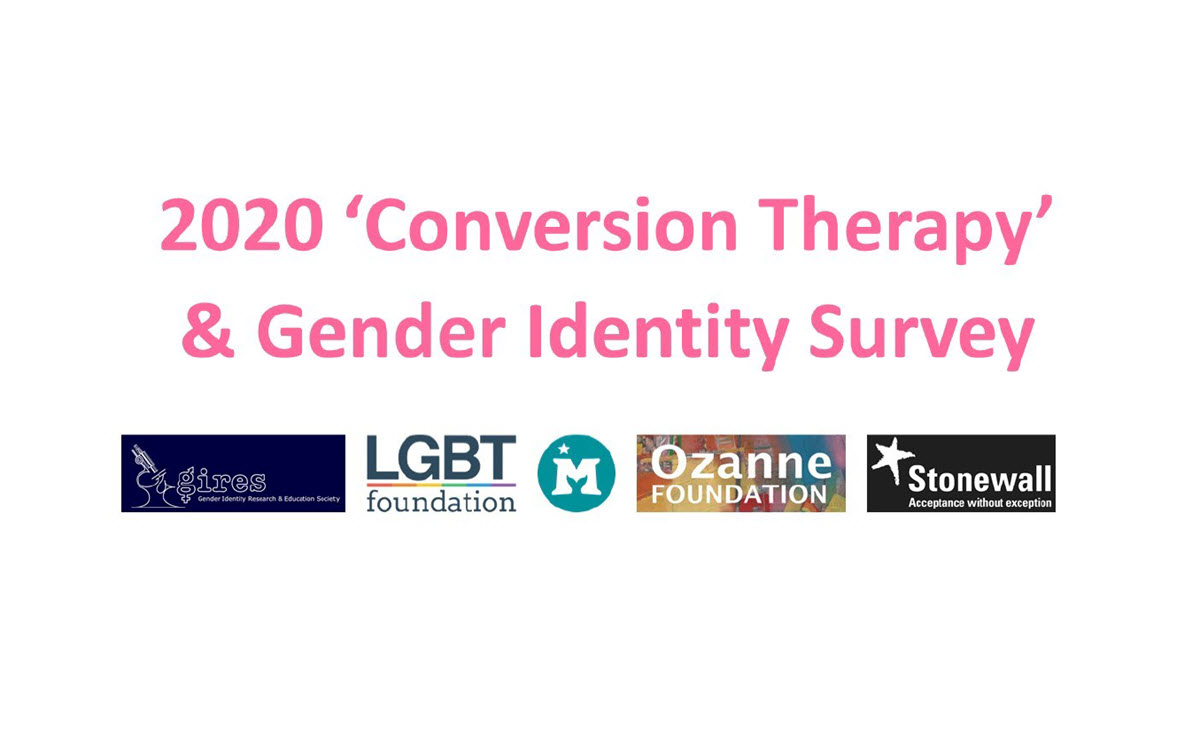UK ‘Conversion Therapy’ & Gender Identity Survey: an analysis
 Transgender Trend 6 April 2021
Transgender Trend 6 April 2021
The latest salvo in the campaign to legislate for gender ideology is the 2020 ‘Conversion Therapy’ & Gender Identity Survey. It was produced by organizations with a combined earning power £12m per year: Stonewall (£8.3m), the LGBT Foundation (£2.7m), Mermaids (£0.9m), the Gender Identity Research and Education Society (£0.1m annual income), and the Ozanne Foundation. Given their resources, one might have expected something more than a pamphlet of 20 pages. It reports research that is fundamentally flawed.
The respondents were not sampled from a defined population, as in a proper scientific survey. Instead, they were recruited online by the same organizations that are campaigning for legislation. The pamphlet does not provide the questionnaire completed by the respondents, as is standard in scientific research.
As far as one can tell, no academic social scientist was involved in this research. It was overseen by Richard Matousek who is an ‘independent researcher’ at a marketing research company, Kantar. He has only one other research project listed on the website.
Out of a total 1504 responses to the survey, only 51 respondents had undergone ‘gender identity conversion therapy’ (p. 10). Of these, 8 ‘felt it worked completely’ (p. 14). Therefore the survey identified only 43 people who reported negative experiences. This number is surely a slender basis on which to propose new legislation. The category of ‘gender identity conversion therapy’ is so broad that it conflates quite disparate phenomena. On one hand, it includes ‘severe physical and sexual violence’ including rape (p. 5). These abhorrent acts are already serious crimes, and so legislation is not required to outlaw them. On the other hand, the label conversion therapy is also applied to voluntary counselling by an NHS psychotherapist, psychologist, or psychiatrist (p. 12).
The analysis excluded 28% of the survey responses (p. 7). Many of these were omitted for being ‘transphobic’ (p. 18). No objective criteria are provided to define transphobia; the epithet apparently serves to exclude responses that contradicted the legislative agenda of the organizations funding the research. One such response expressed concern that gender-nonconforming homosexuals are being encouraged to imitate the opposite sex by taking cross-sex hormones and enduring surgeries—‘transing the gay away’ (p. 18). Presumably any responses by detransitioners such as Keira Bell or Sinead Watson—who now regret being given medical ‘treatments’ for gender dysphoria—would likewise have been excluded.
In sum, then, the research reported in the pamphlet has little, if any, scientific value. It reinforces the impression that the proposed legislation is motivated by the desire to further institutionalize gender ideology rather than the need to address a real social problem.
READ MORE: https://www.transgendertrend.com/conversion-therapy-gender-identity-survey-analysis/






